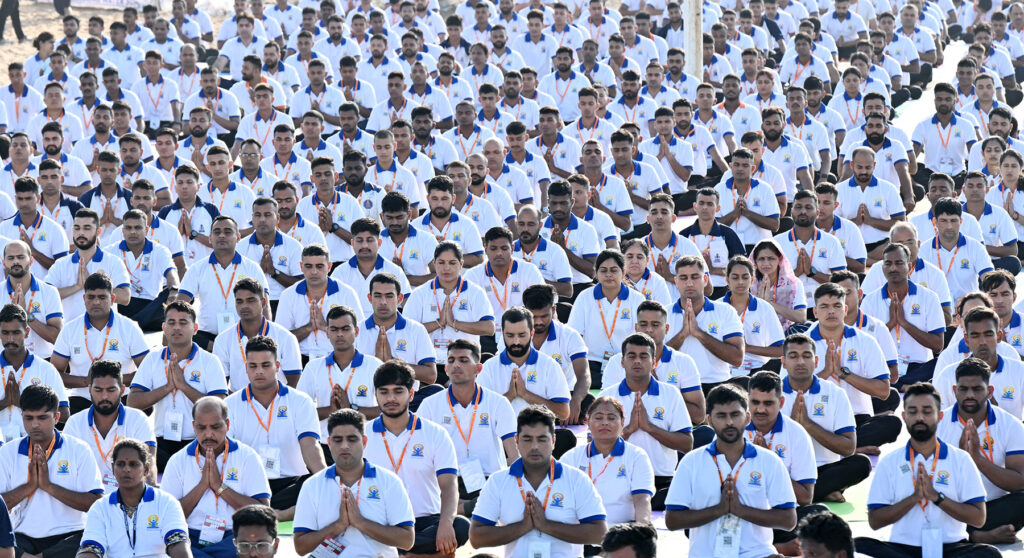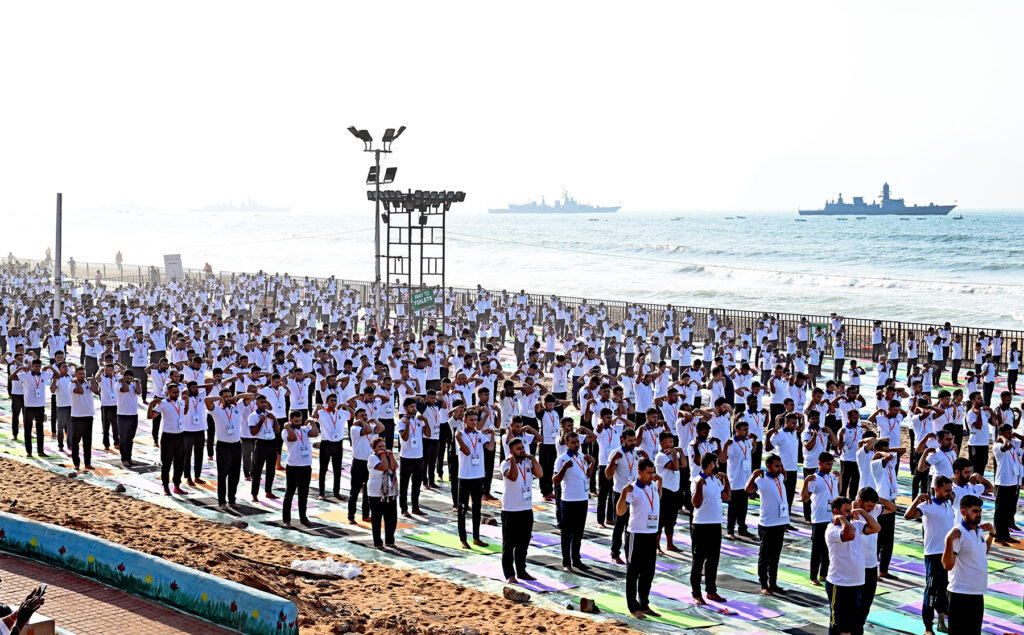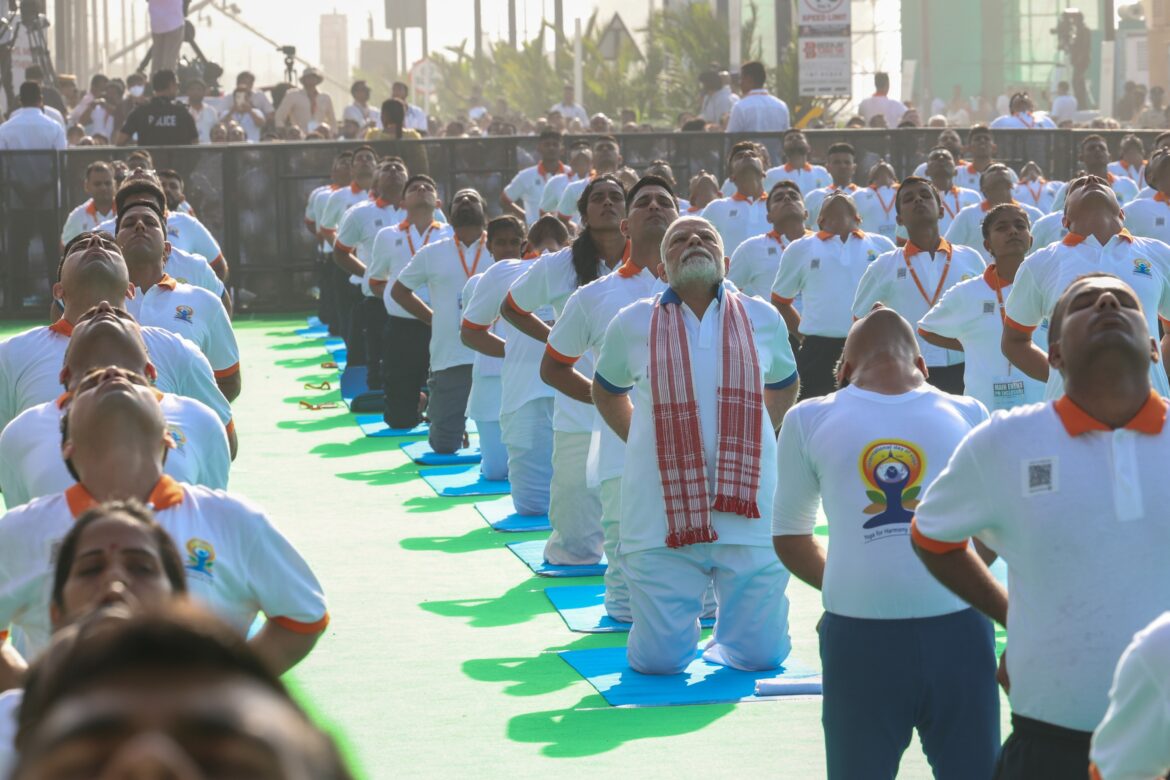On June 21, 2025, India grandly celebrated the 11th International Day of Yoga (IYD), showcasing not only the ancient practice’s profound benefits but also a strategic move to position the nation as a global hub for holistic healing.
India’s Prime Minister Narendra Modi, leading the nationwide observance from Visakhapatnam, unveiled a significant initiative: the special e-Ayush visa, designed to facilitate international access to India’s burgeoning wellness ecosystem. This year’s theme, “Yoga for One Earth, One Health,” underscored India’s vision of interconnected well-being, both human and planetary.

The introduction of the e-Ayush visa marks a pivotal moment in India’s efforts to capitalize on the growing global interest in traditional and holistic healthcare. Prime Minister Modi highlighted that this new visa category is specifically designed to streamline international access to India’s rich wellness offerings, including yoga, Ayurveda, naturopathy, Unani, Siddha, and homeopathy. This initiative is a direct response to the increasing global traction of the “Heal in India” movement, which positions the country as a premier destination for health and wellness tourism.
The e-Ayush visa aims to simplify the process for individuals seeking authentic wellness experiences and treatments in India, directly supporting the nation’s commitment to sharing its traditional healing practices with the world.
A Decade of Global Yoga Leadership
Since its inception in 2015, when India’s proposal garnered unprecedented support at the United Nations General Assembly, IYD has transformed into a powerful global health movement. Prime Minister Modi, who has personally led celebrations from iconic locations worldwide, including New York’s UN Headquarters, reflected on this journey. “The essence of yoga is ‘to unite’,” he remarked, noting with pride how it has become an integral part of millions of lives globally, reaching individuals from Divyang communities engaging with Braille texts to scientists practicing in space.
The Prime Minister’s address in Visakhapatnam, where he joined a Common Yoga Protocol (CYP) session alongside nearly 500,000 participants, was broadcast live to over 350,000 “Yoga Sangam” events across India. Innovative initiatives like “Yoga with Family” and “Yoga Unplugged” contests further amplified mass participation, especially among youth, through digital platforms.
Yoga for a Holistic World: “One Earth, One Health”
This year’s IYD theme, “Yoga for One Earth, One Health,” deeply resonated with the urgent need for a holistic approach to global well-being. Prime Minister Modi elucidated that this theme highlights a fundamental truth: human well-being is intrinsically linked to the health of our planet. “Yoga awakens us to this interconnectedness and guides us on a journey toward oneness with the world,” he asserted, explaining how it transitions individuals from a self-centric “Me” to a community focused “We,” fostering collective welfare.
Amidst rising global stress and instability, the Prime Minister presented yoga as “the pause button humanity needs, to breathe, to balance, to become whole again.” He issued a fervent appeal for “Yoga for Humanity 2.0,” urging nations to integrate yoga into their lifestyles and public policies to foster a peaceful, balanced, and sustainable world.
Nationwide Engagement and Scientific Backing
The spirit of IYD permeated every corner of the nation. Union Finance Minister Nirmala Sitharaman participated in celebrations in Faridabad, while the Archaeological Survey of India (ASI) and the Ministry of Ayush hosted yoga sessions at 81 iconic heritage sites, blending culture with wellness. Lok Sabha Speaker Om Birla led celebrations within the Parliament premises, emphasizing yoga’s role in achieving “harmony between the body, mind, and soul.”

Beyond mass participation, India is actively bolstering the scientific foundation of yoga. Prime Minister Modi highlighted that leading medical institutions are dedicated to yoga research, aiming to establish its scientific relevance within contemporary medical practices. He lauded AIIMS, New Delhi, for its significant contributions, citing research on yoga’s positive impact on cardiac and neurological disorders, as well as women’s health and mental well-being.
The e-Ayush visa complements other structured efforts, such as the Yoga Certification Board, which has trained over 650,000 volunteers, and the inclusion of a 10-day yoga module in medical colleges. Trained yoga teachers are also being deployed across Ayushman Arogya Mandirs nationwide, ensuring wider accessibility to guided practice.
As the sun sets on another International Day of Yoga, India’s message is clear: through initiatives like the e-Ayush visa and a commitment to evidence-based practices, yoga is not just an ancient tradition, but a vital, modern tool for achieving peace, health, and harmony for all.






